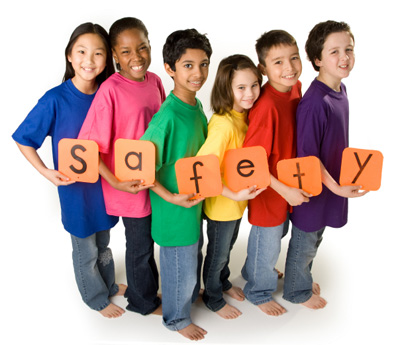Experts from Riley Hospital for Children in Indianapolis, Indiana, offer six steps to safeguard the youngest generation.
Crack nuts, not knuckles. Dr. Aaron Carroll, Indiana University School of Medicine associate professor of pediatrics, suggests that parents nip knuckle cracking in the bud. Over time, the habit can lead to swollen hands, reduced hand strength, and possible finger injuries. But, he says, there is no evidence that it causes arthritis.
It’s OK to worry. What’s important, says clinical psychologist Michele Thorne, Ph.D., is that kids know to turn to a parent for advice when something is bothering them. The frontal lobe, the part of the brain that handles planning, concentration, and reasoning, develops until late adolescence or early adulthood. “It’s best to talk with your children frequently about what is going on,” says Dr. Thorne, “and to explain how family members and possibly others are dealing with it.”
Stay away from elevator doors. Unintentional injury is the leading cause of death in children, and elevator injuries account for nearly 2,000 emergency room visits by children each year. Dr. Joseph O’Neil suggests parents firmly advise children to not use their arms or legs to stop the elevator doors from closing. Even better, he says, encourage kids to walk up or down the stairs whenever possible.
Be careful on escalators. Another 2,000 kids get hurt on escalators every year. Falling or getting their legs trapped account for most of these injuries. Kids should approach and stand on escalators carefully to avoid hurting themselves or others nearby, who are often older adults.
Follow the “No-Second Rule.” Pediatrician Michael McKenna advises parents to disregard “the five-second rule”—a rule, cited by kids everywhere, which suggests that dropped food is safe to pick up and eat if it has only been on the ground for five seconds. Exposure to some bacteria is good for kids. But food, gum, or toys that fall on the floor, sidewalk, or grass can pick up many “nasty” things and shouldn’t be put into the mouth.
Ugh! Don’t kiss the dog. Dr. Rachel Vreeman says the adage that dogs have cleaner mouths than humans is untrue. Children should not exchange kisses with their pets (or animals that belong to anyone else). She suggests parents remind their kids that dogs sometimes put their tongues in very unappealing places—another reason to avoid contact dog saliva.
Become a Saturday Evening Post member and enjoy unlimited access. Subscribe now




Comments
Speaking of safety, please be mindful of the ongoing threat posed by accidentally turning on kitchen garbage disposals. Children (and even absent-minded adults) unintentionally flip wrong switches, believing they switched on a light or some other device instead. It’s so common, fingers being caught in whirling disposal blades during the holidays is more prevalent than many realize (or choose to disclose). Toggle switch identifiers, such as those seen in safety products like “Which Switch?” can minimize this problem – and save energy and appliance life – by positively identifying the right switch for the right appliance.
Have a Safe Day!
safety is very important but your health is too!So people need to take care of both!